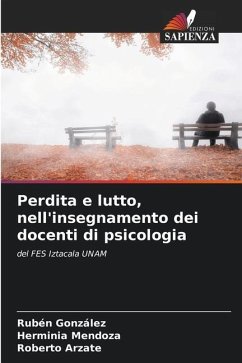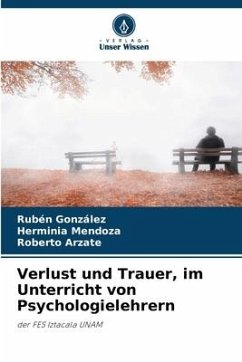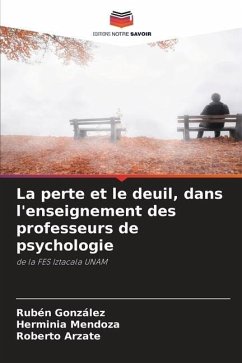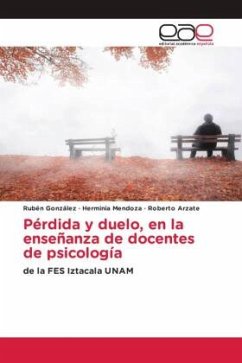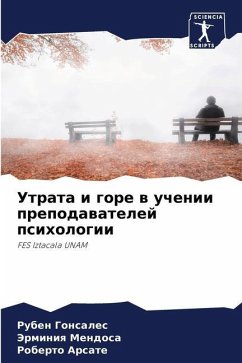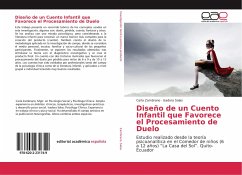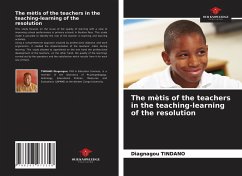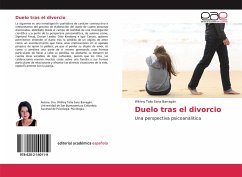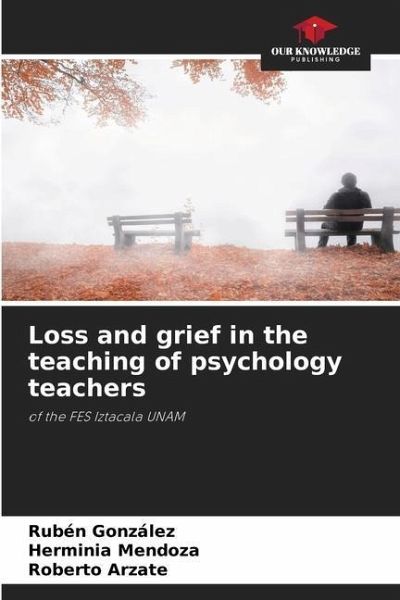
Loss and grief in the teaching of psychology teachers
of the FES Iztacala UNAM
Versandkostenfrei!
Versandfertig in 6-10 Tagen
56,99 €
inkl. MwSt.

PAYBACK Punkte
28 °P sammeln!
This book is an empirical research work about the thanatological processes of loss and grief in six university professors, as a result of their experiences in the teaching of a new curriculum in psychology. The experience of these processes was approached through life stories, meanings, personal elaborations and personal narratives, recorded through an in-depth interview of 10 questions, formulated for this purpose. The guiding methodology was the structural analysis model in social and human sciences, with a humanistic orientation. The data obtained showed the cognitive and experiential eleme...
This book is an empirical research work about the thanatological processes of loss and grief in six university professors, as a result of their experiences in the teaching of a new curriculum in psychology. The experience of these processes was approached through life stories, meanings, personal elaborations and personal narratives, recorded through an in-depth interview of 10 questions, formulated for this purpose. The guiding methodology was the structural analysis model in social and human sciences, with a humanistic orientation. The data obtained showed the cognitive and experiential elements in play, of the participants, in the face of a shift in the teaching of knowledge, in the curricular formation of students, from a model of modernity, classical and orthodox as the behavioral one, to one of postmodernity, multiple and diverse, of six theoretical traditions. It reflects on this sudden change of teaching and its threatening impact on the academic work in crisis, which develops situations of personal and educational conflict, understood in the light of humanistic psychotanatology.



